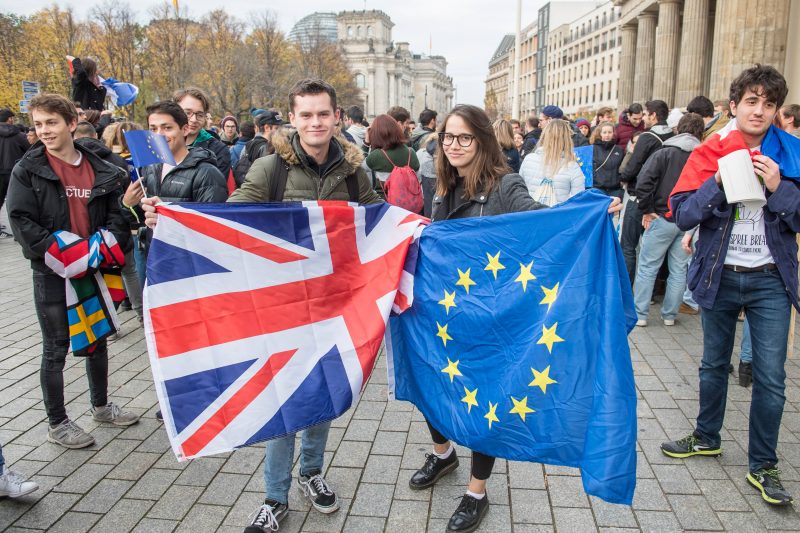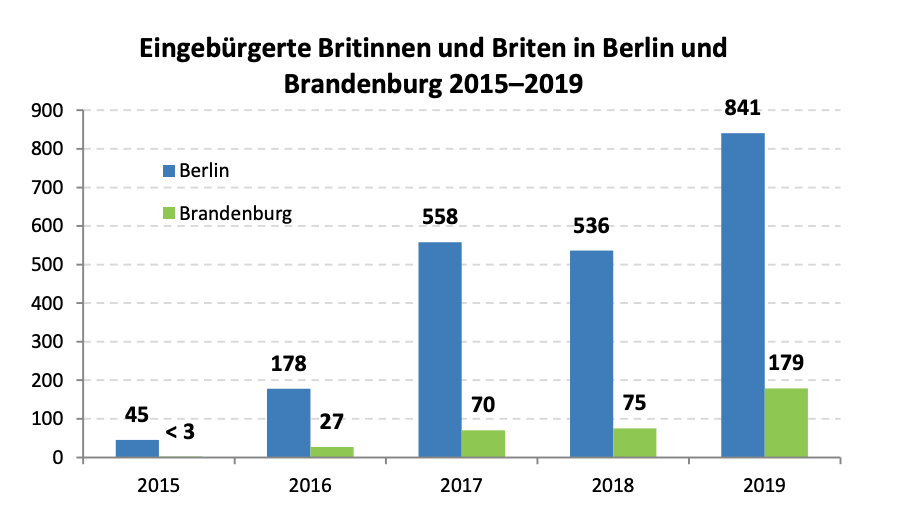It’s amazing the difference a few months can make. Back in January 2020, Brexit was front-page news. One nation’s protracted struggle with its European identity was coming to an end, and — to the general consternation of its continental counterparts — the UK officially left the EU at midnight on the 31st. Fast forward four months, via a global pandemic and a US facing its fiery reckoning, and the subject has slipped from radars everywhere.
Particularly in the UK — somewhat ironically — where focus has turned instead to an underfunded healthcare system battling to save those needlessly exposed to a brutal disease by a flailing government. A flailing government elected on the back of a populist Brexiteer promise, no less. A promise which now seems not only hollow but downright absurd.

Brexit in Berlin: More and more Brits apply for German citizenship
But while it no longer makes headlines, the impact of Brexit can be seen here in Berlin. Approximately 14,500 Britons currently reside in the German capital, lured from London or elsewhere by cheap(er) rents, club culture, wide pavements and a slower pace.
According to the Berlin-Brandenburg Statistics Office on 2nd June 2020, the number of Brits successfully obtaining German citizenship in Berlin rose from 536 in 2018 to 841 in 2019. At 12.3% of all naturalisations, this represents the largest single group. In second place, 741 Turkish citizens obtained their German passports in Berlin in 2019.
By way of comparison, just 45 Brits were naturalised in Berlin in 2015, the year before the Brexit referendum took place. Since 2016, some 2,113 British nationals in Berlin have been granted German citizenship in total.

Brandenburg 2015-2019. Source: Amt für Statistik Berlin-Brandenburg (CC)
Brandenburg, too, has seen large proportional increases in citizenship applications from resident Brits: up from 27 naturalisations in 2016 to 179 in 2019. At 17.2%, more than 1 in 6 naturalisations last year were Brits, who leapfrogged 135 Polish applicants into second place.
Obstacles and eligibility: Brits in Berlin
And these statistics tell only half the tale — those of successful applicants whose paperwork and circumstances grant them citizenship. What of the countless others who haven’t yet been here long enough (at least 8 years as a permanent resident) to apply for naturalisation? Many who took lighthearted advantage of the EU’s free movement will first have to tackle residency permits long before citizenship applications if they wish to stay after the transition period ends, which themselves require 5 years of legal residency in Germany.
Even those who’ve been here long enough and jumped through the necessary bureaucratic hoops have encountered obstacles. Paul Sullivan, a 12-year Berlin resident, is still wading through paperwork — having submitted his original citizenship application in January 2019 and being told after almost a year of waiting that more documents were needed.
But he’ll press on: “The UK has gone from bad to worse, and I have gradually realised I would much happily hand back my British passport given the chance of a German one,” he says. “Whether I get that chance or not remains to be seen, but regardless I hope to remain in Germany for the foreseeable future, and have no plans to go back to an increasingly xenophobic and Tory-run Britain.“
Berlin is a city bolstered by its immigrant population. How has the corona crisis affected expat workers across the city’s gastro scene?




